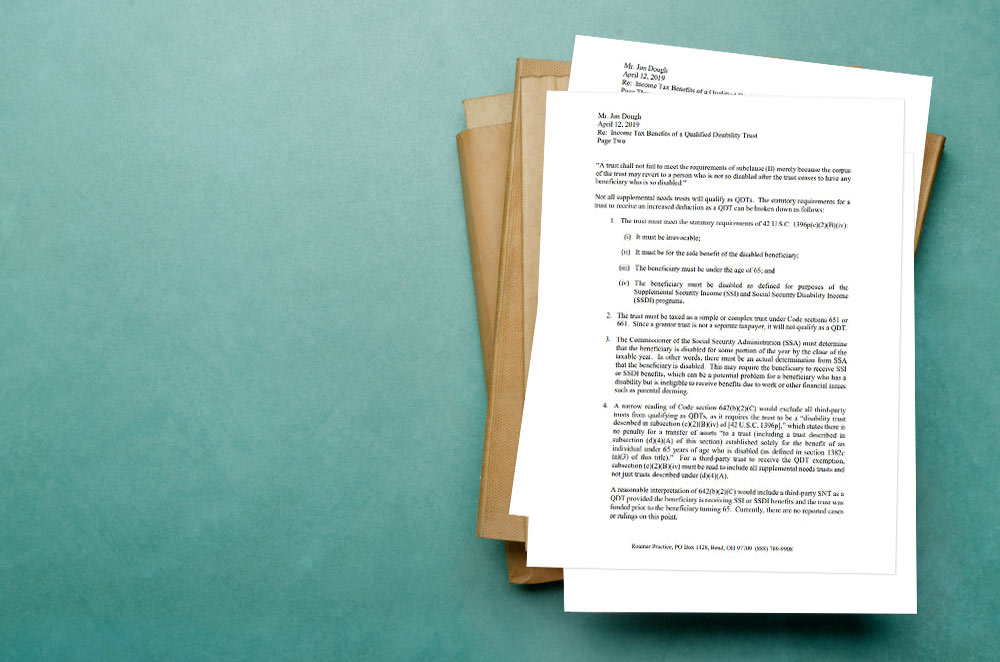
Nonfungible tokens (NFTs) are gaining popularity at an exponential rate. Trades of these unique digital assets increased by an eye-popping 21,000 percent in 2021, for a total value of $17.6 billion. Because your clients are increasingly likely to have NFTs in their portfolios, it is important that you understand them and know how to include them in an estate plan.
What Are NFTs?
An NFT is a unique virtual token that is linked to property. NFTs are created online through a process called minting, and its ownership is recorded on a public transaction database called a blockchain. The creator links the NFT to the item it represents, which can be one of the following:
- Photos
- Video clips
- Sports collectibles (including animated basketball cards)
- Music
- Gaming collectibles and characters
- Digital art (such as this one with a record-high price of $69 million)
- Social media posts
- Digital real estate
NFTs can also be linked to an experience. Social media guru Tai Lopez offered an NFT for $50,000. Its owner gets a chance to play a one-on-one basketball game against Lopez for the opportunity to win $10,000.
Learn more about NFTs by registering for the Advanced Estate Planning Summit on cryptocurrency happening October 17, 2022.
It is crucial that NFT owners and their estate planning attorneys preserve access to the digital wallet in which the NFT is stored. Only a private key consisting of a seed phrase (a list of random words) can unlock access to the digital wallet. The NFT’s digital wallet can be stored on
- a dedicated flash drive,
- computer or smartphone software, or
- an Internet-accessed exchange.
Since NFTs are decentralized like cryptocurrency, there is no way to call someone for help if you forget the private key. That is why an estate plan that includes NFTs should include a corresponding transfer of the private key. The details of this transfer should not be included in estate planning documents, because if they are included in the will, they could be made public in probate court. Similarly, if they are included in the trust agreement, they could be revealed to other trust beneficiaries who are not the intended recipients of them.
Where Would an Estate Planning Attorney Encounter NFTs?
The first step is to ask your client if they own NFTs or are planning to add them to their portfolio. This should be a part of your initial client interview as well as any maintenance meetings. If the answer is yes, your client should keep accurate records of the purchase and sale of the NFTs. This is necessary for capital gains tax documentation.
Why Are NFTs Important?
Like cryptocurrency, NFTs are not going away. Instead of being the new thing, they will eventually become the normal thing. NFTs are essentially a modern version of collectibles such as stamps, coins, comic books, and baseball cards. The value of an NFT can vary wildly; it depends solely on how much someone is willing to pay for it.
You never know when the value of an NFT will go through the roof. While a virtual kitten known as a CryptoKitty typically sells for $9, one sold for $172,000. Most social media posts are worthless, but an NFT of the first tweet from Twitter’s founder Jack Dorsey sold for over $2.9 million.
The technology behind NFTs is gaining traction in many different sectors: from digital sneakers to the potential to track and store real estate documents. If you can become more familiar with blockchain-based technology, you will be able to adapt as it continues to gain popularity in all facets of society. Further, clients expect their advisors to be competent in planning for and administering all types of assets.
How Should I Counsel Clients Who Own NFTs?
Your client may have purchased an NFT with cryptocurrency, so it is important to know that the Internal Revenue Service (IRS) considers cryptocurrency to be property, not money, for income tax purposes (I.R.S. Notice 2014-21). Your client may have a capital gain or loss based on the value of the cryptocurrency used for the NFT purchase.
In addition to stressing the importance of safeguarding the digital wallet and private key necessary to access the NFT and properly transferring that information in the client’s estate planning documents, you may also want to encourage your client to talk to their financial advisor. NFTs are a volatile market. One set of NFTs centered around English soccer recently plummeted in value by 90 percent.
Learn More About NFTs and Estate Planning
 The best way to understand NFTs is to create one yourself. The latest edition of the WealthCounsel Quarterly contains a step-by-step guide on how to create and store your own nonfungible token, as well as the unique estate planning considerations surrounding NFTs. With this knowledge, you will be well-equipped to serve clients who own NFTs. Subscribe to the Quarterly to receive this issue for free and learn more about NFTs and estate planning.
The best way to understand NFTs is to create one yourself. The latest edition of the WealthCounsel Quarterly contains a step-by-step guide on how to create and store your own nonfungible token, as well as the unique estate planning considerations surrounding NFTs. With this knowledge, you will be well-equipped to serve clients who own NFTs. Subscribe to the Quarterly to receive this issue for free and learn more about NFTs and estate planning.



